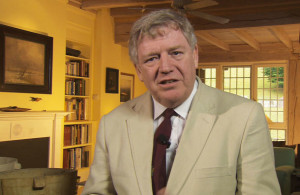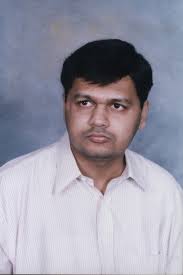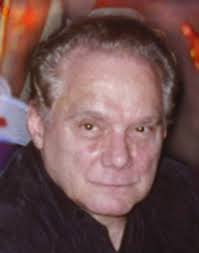South China Sea
Hoff, Frank Joseph
Frank Joseph Hoff is a qualified American business administrator. He developed an ealy interest in  ancient mysteries including Atlantis. So when he encountered the theories of the Brazilian professor, Arysio Nunes dos Santos, who had concluded that Atlantis and the biblical Eden were the same and more controversially that it had been located in the South China Sea. Hoff was intrigued. So in 1998, he established contact with Santos and eventually became his ‘understudy’ assisting with research and promotion. He encouraged the professor to publish his work in English, which was done in 2005. Unfortunately, just two months later Santos died(a).
ancient mysteries including Atlantis. So when he encountered the theories of the Brazilian professor, Arysio Nunes dos Santos, who had concluded that Atlantis and the biblical Eden were the same and more controversially that it had been located in the South China Sea. Hoff was intrigued. So in 1998, he established contact with Santos and eventually became his ‘understudy’ assisting with research and promotion. He encouraged the professor to publish his work in English, which was done in 2005. Unfortunately, just two months later Santos died(a).
Following the death, Hoff continued to promote the work of Santos and carry out further research himself. He has featured on many of the American ‘fringe’ radio programs.
(a) https://www.veritasradio.com/guests/2013/07jul/VS-130704-fhoff.php
Oppenheimer, Stephen
Stephen Oppenheimer (1947- ) qualified in Medicine from Oxford University in 1971. He moved to the Orient where he specialised in tropical paediatrics. He was Professor of Paediatrics at the Chinese University of Hong Kong from 1990 to 1994. Much  of his research focused on malaria and the unique genetic mutations that protect against it. Since these mutations act as markers Oppenheimer found that they held strong evidence for the migrations caused by the extensive flooding following the last Ice Age. This led him to investigate the cultural origins of the peoples of South East Asia.
of his research focused on malaria and the unique genetic mutations that protect against it. Since these mutations act as markers Oppenheimer found that they held strong evidence for the migrations caused by the extensive flooding following the last Ice Age. This led him to investigate the cultural origins of the peoples of South East Asia.
Oppenheimer wrote a book[004], which identified the South China Sea as the original location of the Garden of Eden. Although he makes little reference to Atlantis, the book is of great interest to those that favour an oriental rather than a western location as the inspiration for Plato’s legendary land.
R. Cedric Leonard has drawn attention to an article by Oppenheimer in a 2006 edition of Prospect magazine(d) with a follow-up contribution in the June 2007 edition(e). In them, he proposes that the early immigrants into the British Isles were more likely to have been Basques rather than Celts. Leonard speculates(f) that the Bretons (Britons) were Basques, who in turn were Atlantean refugees!
A critical review of Oppenheimer’s volume by Koenraad Elst(c), the Belgian orientalist, as well as the more recent supportive views of Dale Drinnon can be found on the Internet(a).
Oppenheimer has also written a further book[005] that looks at the origins of modern mankind in Africa and its spread throughout the rest of the world.
In February 2012 it was reported(b) that the president of Indonesia was encouraging a search for an ancient civilisation in Indonesian waters. This apparently followed meetings with local researchers and Stephen Oppenheimer. President Yudhoyono has also given his support to the extensive research being carried out at Gunung Padang(g).
Oppenheimer in conjunction with the Bradshaw Foundation(h) has produced a valuable interactive genetic map showing how the world was peopled(i).
In 2014, Oppenheimer endorsed(j) the conclusions of Stanford and Bradley who propose that the Clovis people were related to the Solutrean people of western Europe who had crossed the Atlantic during the last Ice Age.
See also Sundaland.
(a) See Archive 3581
(b) See Archive 2976
(c) https://web.archive.org/web/20190311153957/https://koenraadelst.bharatvani.org/reviews/atlantis.html*
(d) https://www.prospectmagazine.co.uk/magazine/mythsofbritishancestry/
(e) https://www.prospectmagazine.co.uk/magazine/mythsofbritishancestryrevisited/
(f) https://web.archive.org/web/20170113172907/https://www.atlantisquest.com/Bretons.html
(h) Bradshaw Foundation (archive.org) *
(i) Bradshaw Foundation – Journey of Humankind (archive.org) *
(j) https://www.tandfonline.com/doi/abs/10.1080/00438243.2014.966273?journalCode=rwar20
Also see: Sundaland
Abbas, Zia *
Zia Abbas, according to his own blurb, is a computer scientist and works as a freelance software engineer and consultant for many companies. He is the author of Atlantis: The Final Solution[001] in which he claims to prove that Plato’s Atlantis is to be found in the South China Sea. The core proposal of this book is that Atlantis was located on the continental shelf in the South China Sea,  known as Sundaland, which was exposed before the end of the last Ice Age, when it was inundated as the glaciers retreated. According to Abbas, this large landmass contained the original Atlantis and was known as Idress. It is quite probable that early urban settlements did exist along the coast and at the river mouths of Sundaland, and were subsequently flooded. However, it is quite improbable that the flooding of these towns and villages were the inspiration for the Atlantis of Plato. Remember that at the same time, similar inundations were taking place much closer to home in the Mediterranean and the Atlantic and these events are more likely to have been remembered in the legends and myths familiar to Plato. The prehistoric flooding of the Sundaland region is covered extensively in Stephen Oppenheimer’s Eden in the East [004].
known as Sundaland, which was exposed before the end of the last Ice Age, when it was inundated as the glaciers retreated. According to Abbas, this large landmass contained the original Atlantis and was known as Idress. It is quite probable that early urban settlements did exist along the coast and at the river mouths of Sundaland, and were subsequently flooded. However, it is quite improbable that the flooding of these towns and villages were the inspiration for the Atlantis of Plato. Remember that at the same time, similar inundations were taking place much closer to home in the Mediterranean and the Atlantic and these events are more likely to have been remembered in the legends and myths familiar to Plato. The prehistoric flooding of the Sundaland region is covered extensively in Stephen Oppenheimer’s Eden in the East [004].
Abas was no trailblazer, as the idea of Atlantis in this region has been advocated since 1997 by investigators such as the late Professor Arysio Nunes dos Santos(a) and William Lauritzen(b). Abbas’ claims are just a poor rehash of their ideas and his particular book has done little to advance their acceptance. Around the same time, Dr. Sunil Prasannan published a paper on Graham Hancock‘s website that also endorsed the Atlantis in Sundaland theory(e). Since then, Dhani Irwanto has developed the Sundaland theory further, expanding Santos’ 32-point checklist to 60 points(d).
On the first page, Abbas claims that Atlantis was a republic, which seems rather strange for a confederation ruled by ten kings. He states that Athena was a ‘god’ of Atlantis, a claim that would have surprised Plato. Abbas also asserts that Atlantis is to be found in the Old Testament under the name of Enoch!
Further incongruity is encountered when we find that Abbas’ website includes a technical paper on Gravitation and Special Relativity.
This book is high on speculation and low on science. For many, the author’s credibility will completely vanish as soon as they encounter references to reptilian aliens a la David Icke, artificial structures on Mars or a hollow Earth. This is all a far cry from the Dialogues of Plato and probably explains the poor reviews that the book has received.
In a short paper entitled Atlantis in a Nutshell(c), Abbas offers a brief overview of Atlantis as he sees it.
Little has been heard from Abbas in recent years, during which the Atlantis in Sundaland theory has been advocated more convincingly by dos Santos and Irwanto.
(b) Welcome to Earth360.com (archive.org)
(c) Archive 2316 | (atlantipedia.ie) *
(d) Atlantis City in The Java Sea | Atlantis in the Java Sea (atlantisjavasea.com)
(e) Where was Atlantis? Sundaland fits the bill, surely! – Graham Hancock Official Website
Santos, Arysio Nunes dos
Arysio Nunes dos Santos (1937-2005), was a highly qualified engineer with many patents to his credit. He was a Professor of Nuclear Engineering at  the Federal University of Minas Gerais in Brazil and had also worked as a geologist and climatologist. He was also an amateur linguist who had mastered Greek and Sanskrit among others. Apart from his professional interests, Santos has written on a diverse range of subjects including Symbolism, Alchemy, the Holy Grail and Comparative Mythology and Religion. His studies led him to conclude that Atlantis and the biblical Eden were the same and more controversially that it had been located in the South China Sea. An even more contentious idea of Santos was his claim that the seven sacraments of Christianity have an Atlantean origin(a). There is an interesting website(b) promoting his theories and in 2005 his ideas were published in book form[0320], but sadly, Professor Santos passed away just weeks after it was launched. Since then his work has been championed by his son Bernado and Frank Joseph Hoff, who had done research for Santos over a number of years(c). Hoff has promoted dos Santos’ work in a number of radio interviews that can be heard online(g)(h).
the Federal University of Minas Gerais in Brazil and had also worked as a geologist and climatologist. He was also an amateur linguist who had mastered Greek and Sanskrit among others. Apart from his professional interests, Santos has written on a diverse range of subjects including Symbolism, Alchemy, the Holy Grail and Comparative Mythology and Religion. His studies led him to conclude that Atlantis and the biblical Eden were the same and more controversially that it had been located in the South China Sea. An even more contentious idea of Santos was his claim that the seven sacraments of Christianity have an Atlantean origin(a). There is an interesting website(b) promoting his theories and in 2005 his ideas were published in book form[0320], but sadly, Professor Santos passed away just weeks after it was launched. Since then his work has been championed by his son Bernado and Frank Joseph Hoff, who had done research for Santos over a number of years(c). Hoff has promoted dos Santos’ work in a number of radio interviews that can be heard online(g)(h).
>In a short article(i) on the Santos website, it is claimed that the Americas were peopled by visitors from an Asian Atlantis – “The New World is perhaps the region where the civilizing impact of Atlantis is easiest to observe. In contrast with the establishment doctrine that claims the Americas were peopled via the Bering Strait and developed an autochthonous civilization, we argue that civilization, — along with a substantial component of the population of the Amerindian nations — came to the Americas via the Pacific Ocean. This is particularly the case of the more advanced cultures such as those of the Incas of Peru and the Mayas and Aztecs of Mexico.
Amerindian contacts with the Far Orient were both regular and intensive throughout antiquity. White Civilizing Heroes such as Bochica, Quetzalcoatl and Kukulkan are indeed the Nagas or Minas, the fabled Serpent Peoples of the Eastern Indies. Our arguments are based on the solid evidence afforded by the domesticated plants and animals that exist on both sides of the Pacific Ocean, and on the cultural and linguistic parallels that make of pre-Columbian America the perfect dual of the ancient Indies, and a replica of Atlantis.”<
In 2014, three Kindle books by dos Santos were published posthumously with some rather peripheral Atlantis themes, Atlantis and the Pillars of Hercules[1378], Atlantis and the Holy Grail[1379] and Atlantis and the Drug Cults[1380].
An extensive two-part document by dos Santos, entitled The Atlantean Symbolism of the Egyptian Temple can be read online(e)(f).
Understandably, Santos’ basic theory has received considerable support from Asian commentators.
Nevertheless, some of the geological aspects of his theories were criticised by the Indonesian geologist Dr. Awang Harun Satyana(d).
(a) The Atlantean Origin Of The Seven Sacraments | Atlantis (archive.org)
(c) See: https://web.archive.org/web/20160310112403/https://atlan.org/important_announcement.html
(d) See: Archive 2794
(e) https://www.bibliotecapleyades.net/atlantida_mu/esp_atlantida_3.htm#inicio
(e) The Atlantean Symbolism Of The Egyptian Temple (Part I) | Atlantis (archive.org)
(f) The Atlantean Symbolism Of The Egyptian Temple (Part II) | Atlantis (archive.org)
(g) https://www.youtube.com/watch?v=VG4yLDxNEtQ
